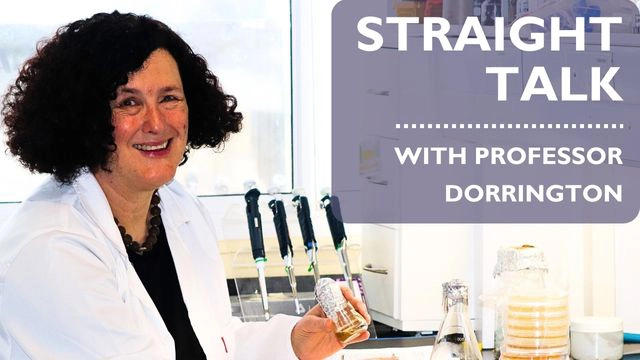
The World Health Organization (WHO) has declared this week as World Antimicrobial Resistance (AMR) Awareness Week. But what exactly are antimicrobials, and why should we care?
Antimicrobials, also known as antibiotics, are drugs used to fight off bacterial and fungal infections. They support the body's defence system against harmful microbes. Think of them as the superheroes that battle the bad guys in our bodies.
The story of antibiotics goes way back to 1928, when Alexander Fleming discovered the first commercial antibiotic, penicillin. This discovery changed the world because penicillin saved countless lives during World War II and paved the way for the more powerful antibiotics we use today.
Now, let's talk about AMR, which has been called “The Silent Pandemic”. In nature, bacteria and fungi produce antibiotics to protect themselves from other harmful microbes and they need to be resistant to the antibiotics they produce to survive. But here's the catch: some microbes “borrow or copy” this resistance to these antibiotics and these resistance genes can be passed around in the environment, including to bacteria and fungi that can make us sick. When we use antibiotics indiscriminately, especially in places like hospitals, these resistant bacteria take over and thrive, making it harder to treat infections.
The most critical problem is in hospitals, where antibiotics are needed the most, and where there are very ill patients often with compromised immunity. This leads to a buildup of drug-resistant germs, called ESKAPEE pathogens, which cause infections that are tough to treat.
AMR-related infections now kill over a million patients each year, more than even malaria, and half of these victims are newborn babies.
So, what happens when you take antibiotics for an infection? Normally, your immune system fights off the infection, but if it can't, your doctor prescribes antibiotics. If your infection is susceptible, the antibiotics take care of most of the bad microbes, and your immune system cleans up the rest. But if your immune system is compromised and the infection is caused by a resistant bug, the antibiotics won't work, and you'll need a different kind.
The big problem is we're running out of effective antibiotics because we've been using them too much and not always for the right reason, such as taking antibiotics for a viral infection. Some microbes are now resistant to multiple drugs, which is a big challenge.
So how do we tackle AMR? Here are three key strategies:
- Antibiotic Stewardship: We need to use antibiotics wisely. This means coordinating when and how they're prescribed, avoiding unnecessary use, and reserving important (frontline) antibiotics just for human use.
- AMR Monitoring: We should keep an eye on hospitals, food, water, and the environment for resistant germs and act quickly when we find them.
- Finding New Antibiotics: the SA-UK Antimicrobial Drug Discovery Hub, led by Rhodes 老虎机游戏_pt老虎机-平台*官网, is at the forefront of the hunt for new antibiotics to fight the super-tough resistant germs. Researchers are working hard to discover these lifesaving drugs. Find out more here: https://youtu.be/XrRnRnKn970
So, in a nutshell, AMR is a big problem for Global Health, making infections harder to treat. But with the right strategies and ongoing research, we can fight back against these superbugs and protect our health.
